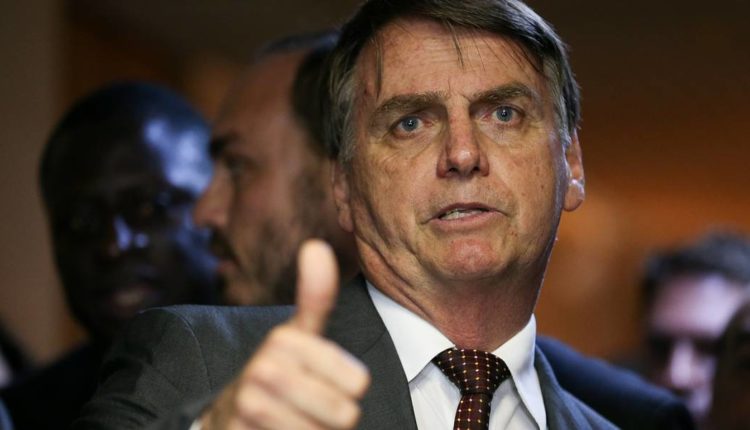
The threat of Bolsonaro
(This opinion piece appeared in the Mexican newspaper, La Jornada, on November 5.)
Recently it has been pointed out that Brazil’s ultra-rightist government that will be led by Jair Bolsonaro will pose serious threats to Brazilian democracy, the country’s economy and society. The authoritarian purposes, neoliberal fundamentalism and the misogynistic, homophobic and racist expressions of the elected president has created a fear of severe regressions in Latin America’s largest country. In addition, in the Brazilian media there is justified concern about the recent threats of intolerance and favoritism of the former captain, who in recent days announced his intention to exclude from the distribution of official advertising funds -500 million dollars- to media that has been critical of him, such as the newspaper, Folha de Sao Paulo, which he promised to end, in what constitutes a dictatorial and inadmissible threat. Added to this are the nearly 75 threats that Bolsonaro supporters have formulated against informants and that resulted in physical violence.
So adding to his praise of repression and exclusion, the next Brazilian president has also praised censorship. It is impossible to separate such an offensive against media and communicators — which makes Donald Trump’s virulent attacks on journalists, U.S. newspapers and television networks pale in comparison; as well as an onslaught against democracy, civility and coexistence, difficult in the polarized political and social context of contemporary Brazil. It is clear that several of Bolsonaro’s governmental designs are impossible or very difficult to implement in the presence of diverse and critical information, and for their fulfillment the silence of dictatorships is required. Therefore, the aforementioned situation should be taken as a warning by Brazilian society as a whole, which has in the past suffered the horrors of a totalitarian regime.
As for the rest, the danger in Bolsonaro’s governance is not restricted to Brazilian territory, but extends to its international projection. In an interview published … by the Correio Braziliense, the Glycese politician expressed his determination to break diplomatic ties between his country and Cuba — because he said there is no point in keeping them — a measure that no Latin American government, however right-wing it may have been, has not dared to undertake since the end of the cycle of military dictatorships that ravaged the region. For his part, retired General Hamilton Mourao, Brazil’s vice president-elect, threatened to intensify diplomatic pressure on Venezuela in order to overthrow the Chavez regime, in what constitutes an interventionist attitude that violates international legality and introduces additional tensions into a South American environment that, until two years ago, was moving towards harmony, cooperation and integration under progressive governments, and today is dominated by regressive rights.
As a sign of these times, the Chilean president, the right-wing Sebastián Piñera, perhaps emboldened by Bolsonaro’s recent electoral victory in Brazil, abandoned the verbal restraint that had characterized him and lashed out against Cuban and Venezuelan authorities, as well as the former presidents of Argentina and Brazil, Cristina Fernández and Dilma Rousseff, respectively, and also against former Brazilian and Ecuadorian leaders, Luiz Inacio Lula da Silva and Rafael Correa. He was also critical of the current Bolivian head of state, Evo Morales.
In short, the Bolsonaro phenomenon threatens not only to destroy Brazilian democracy but also to become a toxic and destabilizing factor for all of Latin America.
* Translation to English by Progreso Weekly.


